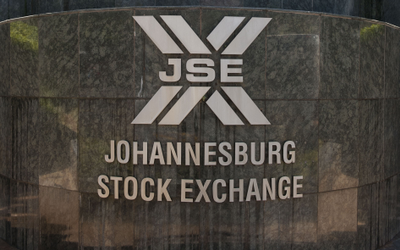
Trade union Solidarity says that statements made by Julius Malema on the racial makeup of the Johannesburg Stock Exchange incites racial tension unnecessarily, and is not an accurate reflection of reality.
The leader of South Africa’s third largest political party, the Economic Freedom Fighters (EFF), on Monday marched to the JSE, the South African Reserve Bank (SARB) and the Chamber of Mines, and accused the Stock Exchange of racism and white dominance.
“It is a fact that black people own less than 19% of the JSE equity, of which black females own 6%. Less than 10% of South Africans’ black and African population, which is more than 90% of the population of South Africa, has real and direct ownership and control of shares in the JSE,” Malema said.
Historically, businesses and corporations represented in the JSE played a role in the economic exclusion, suppression and subjugation of colonial and apartheid white supremacy, the EFF said.
Read: Rich white men in suits still dominate business in South Africa
According to Solidarity deputy general secretary Johan Kruger, authoritative research undertaken by Alternative Prosperity indicates that, by the end of 2013, black South Africans already owned at least 23% of the shares on the JSE.
Of this shareholding, 10% is directly owned by black investors, and 13% is owned indirectly by means of institutional investments such as pension funds.
“This doesn’t mean that the remaining 77% is only white owned. In 2013, foreigners have already owned 39% of the JSE and another 16% was South African owned, although Alternative Prosperity could not establish by which population group they were owned. The remaining 22% consists of white South Africans,” Kruger said.
“Malema’s distorted statements are totally unfounded and once again smacks of an attempt to drive his own race-driven agenda,” Kruger said.
As far as the South African Reserve Bank is concerned, its 2014/15 annual report shows that 50.9% of the SARB’s workforce is black, compared to the 33.3% of white employees at this institution.
Recent data from the 2015 Jack Hammer Executive Report showed that the number of black CEOs running the top 40 JSE listed companies has declined from 15% in 2014 to only 10% in 2015.
The report also showed that‚ out of a total of 334 people constituting the executive teams in SA’s Top 40 companies‚ 21% were black South Africans.
BusinessTech found that of 537 directors on South Africa’s top 40 listed company boards, 72% (386) are white.
More on South Africa
How much money you should pay your domestic worker in South Africa
Why it’s hard to be black in South Africa
Black middle class on the rise in South Africa


